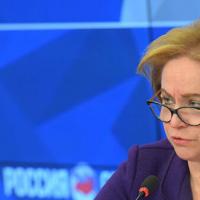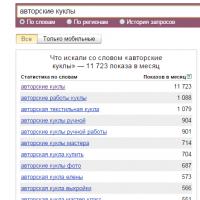Refresher courses in budget planning. IPFM: Management Accounting. Have: skills in management accounting, management analysis and pricing, and an international diploma "Cost Accounting" confirming qualifications
We are chosen because we are practitioners. You get real knowledge and skills that are tested by experience and confirmed by the result.
Who is the distance course for?
√ Are you an economist, accountant, financial manager or executive
√ You need modern knowledge financial management
√ Do you want to improve your qualifications and reach a new level
√ Do you want get practical skills on budgeting
√ You no free time to attend a seminar
√ You do not live in Moscow and can't come to the training center
√ Do you want save on training without loss of quality.
What are you getting?
Duration of training - 5 weeks, 2 lessons per week.
√ 10 lessons - about 20 academic hours of video lectures
√ Online communication with the teacher
√ Checking homework
√ Answers to questions, analysis of your situations
√ Self-checking tests for material fixing
√ 10 ready-made budget form templates
√ 10 provisions on budgeting
√ Certificate of advanced training in the amount of 40 hours at the end of the course
√ 3000 rubles coupon for an online course in financial analysis or management accounting
* Valid for 3 months from the date of purchase
How is the training carried out?
- Immediately after payment, you get access to video lessons according to the schedule at the rate of 2 lessons per week. The schedule can be changed at your request. Unlimited viewing for 60 days.
- You get your homework - studying a ready-made example, or self-calculation using a template.
- You can ask questions using the mail service. You will receive answers either by a reply letter or in the form of an additional video tutorial.
Upon completion of the training, a certificate of advanced training of an economist in the amount of 40 hours is sent (you need to pass online tests, but this is not difficult), or a certificate of completion of the course (without tests).
Who conducts the training?
The Director of the School is Alla Aleksandrovna Uvarova. Experience in finance for 20 years, including 8 years as CFO of leading Russian companies.
Training program "Practice of budgeting"
Video lectures
- Algorithm for setting goals. Enterprise planning. Motivation system. KPI and Balanced Scorecard (BSC).
- The relationship of financial information at the enterprise. DuPont model. Basic financial ratios for building a financial model. Construction of the DDS report by the indirect method.
- Management Accounting. Necessary analytics. The structure of the company's budget. Budget model. Budgeting technology.
- Financial structure. Financial Responsibility Centers. Functional centers. Functions of the head of the Central Federal District.
- Top-down and bottom-top control. How to forecast income.
- Examples of income forecasting at enterprises of different industries. The relationship between financial and non-financial indicators.
- Procurement budget. Production budget. Planning in kind. Resource restrictions.
- Break-even level. Financial safety margin. Operating lever. Project budgeting. Resource planning. Payback period.
- Budget execution control. Financial risk management. Analysis of budget execution. Plan fact. Factor analysis. Multilevel analysis.
- Budgetary regulations. Budgetary schedule. Selection of programs for automation. Typical mistakes when building a budgeting system.
Hometasks:
- Company development forecast. Financial result (Profit and loss statement), financial position (Balance sheet).
- Financial model - BDR, Forecast balance, BDDS by the indirect method.
- Double Entry Financial Model.
- BDDS for the Central Federal District.
- Natural and cost indicators when planning income.
- Consolidated budget - BDR, BDDS, Forecast balance.
- Production budget. Income and expense budget (fragment).
- An example of BDR in financial and physical terms.
- Break-even calculation. Making a decision to launch a project.
- Calculating the budget of two projects and choosing the optimal one.
- Plan-fact analysis of budget execution.
- Three-level variance analysis.
Distance learning standard cost: RUB 15,000.
Now there is a special offer - RUB 15,000... Total12,000 rubles.
The second and third courses from this series are even cheaper - RUB 9,000
Present- course "Finance and reporting in an hour" forRUB 3,0000 rub .
Your savings: 6,000 - 12,000 rubles. Profitable proposition!
Register for the action >>>
We are chosen because we make learning easy and fun, and this helps participants get the most out of the workshop and enjoy the learning.
“I liked the organization and productivity of the seminar, the structuredness and conciseness of theoretical information. I liked the practical tasks very much. Many thanks to you for your professionalism and attention to our problems ", - Natalya Sergeevna Kolesova, Deputy Head of the PEO of the Yakutsk diamond trading enterprise of ALROSA (OJSC), Yakutsk.
“I liked the clear structure of the seminar for the concept of planning and budgeting both in general and in individual elements”, - Olga Puchkova, economist, Diana-trade LLC, Moscow.
“The topic of planning and budgeting has been fully disclosed. It was interesting to independently prepare a forecast profit and loss statement and especially a forecast balance ", - Vladimir Breslavsky, Deputy Director for Economics and Finance, Mnogovershinnoye CJSC, Khabarovsk Territory.
All reviews >>>



We are chosen by well-known companies, and this proves that our methods work not only for us, but also for our clients. We can be trusted as professionals!
The budgeting course will help you get:
√ Practical system knowledge
√ Ability to apply them at work
√ Improving professionalism
√ Career opportunities
√ Benefits in employment
√ High wages
Do not postpone these opportunities until later. If not now, then when?
Certificate of advanced training of the standard established by the state


Register for the action >>>
Hurry up, the promotion may end at any time.
1. I (the Client), I hereby agree to the processing of my personal data received from me in the course of sending an application for information and consulting services / admission to training in educational programs.
2. I confirm that the mobile phone number I have provided is my personal phone number assigned to me by the cellular operator, and I am ready to bear responsibility for the negative consequences caused by the indication of my mobile phone number belonging to another person.
The Group of Companies includes:
1. OOO MBSh, legal address: 119334, Moscow, Leninsky prospect, 38 A.
2. ANO DPO "MOSCOW BUSINESS SCHOOL", legal address: 119334, Moscow, Leninsky prospect, 38 A.
3. Within the framework of this agreement, "personal data" means:
Personal data that the Client provides about himself consciously and independently when filling out an Application for training / receiving information and consulting services on the pages of the Site of the Group of Companies
(namely: surname, first name, patronymic (if any), year of birth, level of education of the Client, chosen training program, city of residence, mobile phone number, e-mail address).
4. Client - an individual (a person who is a legal representative of an individual under the age of 18, in accordance with the legislation of the Russian Federation) who has filled out an Application for training / for receiving information and consulting services on the Site of the Group of Companies, thus expressing his intention to use educational / information and consulting services of the Group of Companies.
5. The group of companies generally does not verify the accuracy of the personal data provided by the Client and does not exercise control over his legal capacity. However, the Group of Companies assumes that the Client provides reliable and sufficient personal information on the issues proposed in the registration form (Application form) and maintains this information up to date.
6. The group of companies collects and stores only those personal data that are necessary for admission to training / receiving information and consulting services from the Group of companies and organizing the provision of educational / information and consulting services (execution of agreements and contracts with the Client).
7. The collected information allows you to send information in the form of e-mails and SMS messages via communication channels (SMS distribution) to the e-mail address and mobile phone number specified by the Client for the purpose of receiving services for the Group of Companies, organizing the educational process, sending important notices, such as changes to the terms, conditions and policies of the Group of Companies. Also, such information is necessary to promptly inform the Client about all changes in the conditions for the provision of information and consulting services and the organization of the educational and admission process for training in the Group of Companies, informing the Client about upcoming promotions, upcoming events and other events of the Group of Companies by sending him mailings and information messages, as well as for the purpose of identifying the party under agreements and contracts with the Group of Companies, communication with the Client, including sending notifications, requests and information regarding the provision of services, as well as processing requests and applications from the Client.
8. When working with the personal data of the Client, the Group of Companies is guided by the Federal Law of the Russian Federation No. 152-FZ of July 27, 2006. "About personal data".
9. I am informed that at any time I can refuse to receive information to the e-mail address by sending an e-mail to the address:. It is also possible to refuse to receive information by e-mail at any time by clicking on the "Unsubscribe" link at the bottom of the letter.
10. I have been informed that at any time I can refuse to receive an SMS message to my specified mobile phone number by sending an e-mail to the address:
11. The group of companies takes the necessary and sufficient organizational and technical measures to protect the personal data of the Client from unauthorized or accidental access, destruction, modification, blocking, copying, distribution, as well as from other illegal actions of third parties with it.
12. The law of the Russian Federation shall apply to this agreement and the relationship between the Client and the Group of Companies arising in connection with the application of the agreement.
13. With this agreement, I confirm that I am over 18 years old and accept the conditions specified in the text of this agreement, and also give my full voluntary consent to the processing of my personal data.
14. This agreement governing the relationship between the Client and the Group of Companies is valid throughout the entire period of the provision of the Services and the access of the Client to the personalized services of the Site of the Group of Companies.
LLC MBSH legal address: 119334, Moscow, Leninsky prospect, 38 A.
LLC MBSh Consulting legal address: 119331, Moscow, Vernadsky prospect, 29, office 520.
CHUDPO "MOSCOW BUSINESS SCHOOL - SEMINARS", legal address: 119334, Moscow, Leninsky prospect, 38 A.
Individual approach to listeners
- managers help the student choose a course of study, taking into account his wishes, work experience and professional development opportunities.
- depending on the initial training of the student, basic and advanced training courses are offered, allowing you to gradually master the disciplines.
- For those wishing to receive in-depth professional education, managers offer individual training formats, taking into account the time constraints of the students.
Technical equipment
- training is carried out on a specialized educational portal of the Higher School of Economics, which allows the student to study at any time and in any place using any modern gadgets.
Copyright y teaching materials
- contain complete information necessary for studying this discipline: lecture notes, examples and cases illustrating the features of the application of the studied technologies in practice
- each course provides video tutorials on the most difficult topics
Accompanying the learning process
- each course is taught by an experienced practicing teacher who promptly advises students on issues of interest to them.
- the course administrator helps the students to solve any technical issues related to the organization of the educational process, provides operational contact with the teacher, draws up the documentation for the educational process.
Phased knowledge control
- the teacher gives detailed comments and recommendations to the listeners on the answers received.
each course of study is divided into topics, the study of which is carried out in accordance with the approved schedule,
based on the results of studying each topic, in order to continue training, it is necessary to complete control tasks,
Education document
Certificate of advanced training of the sample established at the Higher School of Economics.
Practical course in Management Accounting
(cost accounting and budgeting)
The Management Accounting course examines the issues of cost in a management aspect, cost accounting, budgeting basics, calculating the break-even point, marginal and management analysis, as well as pricing.
Who is the management accounting course for:
- economists, accountants, managers who do not have knowledge / skills in this area, but plan to engage in internal accounting and reporting;
- those who have any scattered knowledge in this area and would like to systematize them for successful practical application;
- those who will already have some skills in the field of management accounting and wish to improve their knowledge and receive an international diploma confirming their qualifications.
As a result of the training, you will:
Know: the main methods of management accounting - costing, costing, the basics of budgeting and management analysis.
Be able to: apply the knowledge gained in practical situations (on 53 examples, 62 tasks, 98 tests, a large intermediate test and control task at the end of the course).
Have: skills in management accounting, management analysis and pricing, and an international diploma "Cost Accounting" confirming the qualifications.
Classes are taught by an IPFM accredited teacher of management accounting with international qualifications. Project manager for the organization of management accounting in large companies.
You can choose training options:
- group training in the classrooms of the training center;
- individual form of education;
- corporate training .
Duration of training course :
48 academic hours of face-to-face studies + 20 hours of independent practical work outside the classroom to complete assignments and exercises.
Schedule of the nearest groups (open dates are marked in green):
(*) Classes in Day groups are held in a distance (online) format.
Completion Document Management Accounting:
Based on the results of completing the written test task at the end of the course, a personal certificate is issued from the "Panorama" Training Center on the completion of training in Russian and English.

This course of study corresponds to the program of the Institute of Professional Financial Managers of Great Britain (Institute of professional Financial Managers - IPFM) on the qualification "The Diploma in Cost Accounting" - DipCA.
This allows students who have completed training and passed to receive the IPFM diploma "The Diploma in Cost Accounting" - DipCA.
There are no prerequisites for admission to the exam of candidates, such as seniority.
Cost of education:
24,000 rubles (for individuals) and 26,000 rubles (for legal entities).
Payment by installments for the period of the course is possible.
Registration fee for the exam under the IPFM DipCA program: 6000 rubles (for individuals) and 7000 rubles (for legal entities).
The cost of training includes a textbook of more than 200 pages, developed by teachers of the training center "Panorama". Additional teaching materials are provided free of charge in electronic form through the course support page on our website.
Topic 1. The essence of management accounting.
1.1. Management accounting concept
1.2. Account information users
1.3. Differences between management and financial accounting
1.4. Production accounting and management accounting
1.5. Management process and the role of the accountant in the management process
1.6. Practical tasks
Topic 2. Classification of costs.
2.1. Concept and cost objectives
2.3. Costs in terms of decision making
2.4. Costs in terms of planning and control
2.5. Practical tasks
Topic 3. Accounting for materials and labor costs.
3.1. Material accounting
3.2. Accounting for labor costs
3.3. Practical tasks
Topic 4. Accounting for overhead costs.
4.1. The need to allocate overhead costs
4.2. Overhead Allocation Rates
4.3. Accounting for over- and under-allocated costs
4.4. Practical tasks
Topic 5. Customized costing.
5.1. Characteristics of order costing
5.2. Basic approach to order costing
5.3. Actual and normal costing
5.4. Costing for contracts
5.5. Practical tasks
Topic 6. Process calculation.
6.1. Characteristics of process-based costing
6.2. Counting Equivalent Units
6.3. Allocation of production costs without remnant WIP
6.4. Allocation of production costs, taking into account the remainder of the WIP
6.5. Practical tasks
Topic 7. Planning and budgeting.
7.1. Drawing up: sales budgets, production budget, inventory budget, labor budget, overhead budget, commercial and administrative cost budget
7.2. Financial Statement Forecast
7.3. Practical tasks
Topic 8. Standard costing and analysis of deviations.
8.1. Monitoring and evaluation of performance results
8.2. Types of deviation meters
8.3. Calculation of deviations
8.4. Causes and interdependence of deviations
8.5. Practical tasks
Topic 9. Cost calculations and marginal income.
9.1. Difference Between Costing with Full Cost Allocation and Costing with Variable Costs
9.2. Comparison of the impact on profit of a calculation with a full cost allocation and a cost estimate for variable costs
9.3. Arguments to Support Full Cost Allocation and Variable Cost Costing
9.4. Practical tasks.
Topic 10. Analysis "Costs - volume of production - profit".
10.1. Break-even point and target profit.
10.2. Safety margin (edge, range)
10.3. Operating Leverage (Operating Gearing)
10.4. Assumptions made in the analysis "costs - volume of products - profit"
10.5. Practical tasks
Topic 11. Distribution of costs of integrated production.
11.1. Basic concepts of integrated production
11.2. Composite cost allocation methods
11.3. Accounting for by-products
11.4. Practical tasks
Topic 12. Making decisions on pricing.
12.1. Key Factors Affecting Pricing Decisions
12.2. Cost-plus pricing
12.3. Target pricing
12.4. Special order pricing
12.5. Practical tasks
Topic 13. Drawing up investment budgets.
13.1. Investment Budgeting Objectives and Steps
13.2. Undiscounted Capital Budgeting Techniques
13.3. Discounted investment valuation methods
13.4. Practical tasks
Tests by topic:
1. The essence of management accounting
2. Cost management
3. Accounting for materials and labor costs
4. Accounting for overheads
5. Customized costing
6. Process-by-process calculation
7. Preparation of the main budget and forecast of financial statements
8. Monitoring and evaluation of performance results
9. Costing with full cost allocation and variable costs
10. Analysis "costs - volume of production - profit"
11. Cost accounting of complex production and by-product
12. Making decisions on pricing
13. Capital Budgeting
Practice exam.
Independent implementation of practical assignments on all topics of the course. Checking the work by the teacher. Analysis of errors and discussion of results.
Qualifying exam.
The exam lasts 3 astronomical hours. The passing score is 60 out of 100. The exam takes place in writing. Exam assignments include:
- theory testing and computational microtasks;
- big tasks for calculating the benefits (losses) on orders;
- tasks for the preparation of budgets for sales, purchases, cash flows;
- tasks drawing up a management cost statement, profit and loss statement.
The results of exams, including the issuance of diplomas, will be received no later than 4 weeks from the day of the exam.
- You will learn more advanced issues of cost accounting, calculating pricing and budgeting in the course Management Accounting 2 - "Managerial Accounting" (DipMA).
- All modern budgeting techniques are reviewed at
This course combines all the best for professional development: a student's personal account, free schedule, study materials of different formats and the ability to independently regulate the duration of your studies.
Skills testing
Before and after training, you will be tested in the Finassessment service.
This will allow:
- see what knowledge and at what level you already possess
- look at your learning progress
- get a certificate confirming your professional skills
Webinars with experts
Educational materials
The course includes specially designed webinars, electronic handouts, lecture notes, tests, study guides.
Tests and practical tasks are designed to control the assimilation of the material. Electronic handouts are available for download and printouts (they will remain with you even after you close access to the course).
Hometasks
Interim testing
Personal consultations with experts
If during the course of studying the course you have questions on the topic, then you can always ask the teacher for clarification. You can consult with him via chat in the distance learning system for the entire training period. You can also get additional advanced consultation via video communication in the format of a webinar (this service can be ordered and paid for separately).
Mock exam
Official exam
The official exam for the IPFM diploma is held monthly, according to the schedule, online. Pre-registration is required to participate in it. The list of documents and the registration form for the exam are also located in the distance learning system.
The exam consists of a test and a practice part. The exam lasts 3 hours.
Passing mark: 60.
The exam for the IPFM international diploma is taken by administrators using a proctoring system (observing the student and his computer screen). Completed exam assignments are reviewed and assessed by IPFM accredited teachers.
The exam results are communicated to candidates 2 weeks after passing the exam by e-mail. The IPFM international diploma will be sent to the same mail within 2 months from the date of the announcement of the results in electronic form if the candidate has scored 60 or more points.
Program
These 90 hours are the average time taken to complete the course. Within the allotted access period, you must have time to use everything that is included in the program: testing for Finassessment, study materials, control tests, tasks, notes, personal consultations with a tutor and intensive preparation for the exam.
1moduleThe nature of management accounting. Cost classification for decision making
7 hours of theory, 2 hours of practice (7 webinars, 3 tasks, 2 tests)
- The nature of management accounting
Theory:
- Definition of management accounting
- Fundamental differences between management and financial accounting
- What does management accounting include?
- The essence of management accounting
- Management accounting objectives
- Key users of management accounting
- Persons responsible for the formation of the management accounting system in the organization
- Management accounting tasks
- The main components of the management accounting system in the organization
- The main processes ensuring the formation and functioning of the management accounting system
- Factors affecting the organization of the management accounting system in organizations
- Cost classification for decision making
Theory:
- Determination of costs. How to classify costs.
- Costs: fixed, variable, average, marginal.
- Other types of costs.
- Models and methods for calculating the cost of production.
Practice:
- 3 tasks
- 2 tests.
2moduleCost management concept. Cost behavior. Cost-Volume-Profit Analysis. Break even.
7 hours of theory, 5 hours of practice (13 webinars, 4 tasks, 1 test)
- Cost management concept. Cost behavior
Theory:
- Separation of costs into fixed and variable costs.
- Costing calculation.
Theory:
- The essence of CVP analysis. Break-even analysis
- Firms with high fixed and variable costs
Practice:
- 4 tasks
- 1 test.
3moduleManagement format of the profit and loss statement. Analysis of the structure of sales and profitability of certain types of products
8 hours of theory, 5 hours of practice (7 webinars, 3 tasks, 1 test)
- Management analysis: methods of maximizing profit. Management format of the profit and loss statement
Theory:
- Profit and loss statement for making management decisions. Possible options for constructing a control room
- Algorithm for compiling income statement for management accounting purposes
Theory:
- Sales analysis. ABC sales analysis
- XYZ sales analysis
- Analysis of the profitability of sales
- Factor analysis of profitability of sales
Practice:
- 3 tasks
- 1 test.
4modulePricing
5 hours of theory, 5 hours of practice (4 webinars, 4 tasks, 1 test)
Theory:
- Setting pricing objectives.
- Types of costs
- Pricing Method Costly Pricing Methods
- Market-based pricing methods
- Conclusions on the analysis of pricing methods
- Price elasticity of demand
- Parametric pricing methods
Practice:
- 4 tasks
- 1 test.
5moduleBudgeting; types of budgets; general budget. Responsibility centers.
6 hours of theory, 4 hours of practice (7 webinars, 2 tasks, 1 test)
- Budgeting, types of budgets, general budget.
Theory:
- Budget and types of budgets.
- What is budgeting
- Factor analysis of cost by cost item
Theory:
- The essence of the CFD, their role, advantages and disadvantages.
- Financial Responsibility Centers and Their Key Indicators
- Cost Center Accounting
Practice:
- 2 tasks
- 1 test
6moduleFinancial control: financial performance indicators. Financial controls: flexible budget and transfer pricing
6 hours of theory, 4 hours of practice (7 webinars, 3 tasks, 1 test)
- Financial control: financial performance indicators.
Theory:
- The system of financial ratios.
- Operational Analysis Indicators
- Operating cost indicators
- Asset Management Performance Indicators
- Liquidity indicators
- Indicators of profitability (profitability)
- Capital structure indicators
- Debt service metrics
- Market indicators
- Financial controls: flexible budget and transfer pricing
Theory:
- Flexible budgets and control.
- Transfer pricing
- Essence, necessity and goals of transfer pricing
- Factors influencing the setting of transfer prices
- Market-based transfer pricing mechanism
- Market based pricing
- Pricing types based on full and marginal costs
- Other types of transfer pricing
Practice: 3 tasks and 1 test.
7moduleSegment reporting. Management control: non-financial performance indicators.
6 hours of theory, 4 hours of practice (3 webinars, 2 tasks, 1 test)
- Segment reporting.
Theory:
- The role of segment reporting on a real example.
- The procedure for the formation of segment management reporting
Theory:
- Internal non-financial indicators.
- External non-financial indicators.
- Relationship between financial and non-financial indicators
Practice:
- 2 tasks
- 1 test.
- 1 assignment from the teacher.
8moduleDevelopment of the management control system: a balanced system of performance indicators.
3 hours of theory, 6 hours of practice (1 webinar, 6 tasks, 2 tests)
Theory:
- The goals of developing a balanced scorecard (Balanced Scorecard, BSC).
- Balanced Scorecard Content
- Typical project for the development of a balanced scorecard
- Using financial analysis in the framework of a balanced scorecard
Practice:
- 6 tasks
- 2 tests.
9moduleFinal control work. Mock exam.
- Module 9 is an analogue of the future online exam:
- consists of a test (20 questions of 2 points each, the maximum score is 40 points, it is checked and graded automatically)
- and tasks (4 tasks, maximum total score - 60, checked by the proctor).
- As in the exam, you need to score a total (for the test and the task) 60 points out of 100 possible
Leave your email and we will send you a detailed training program so that you get a complete picture of what awaits you on the course!
Teachers
Each teacher of our courses is an expert practitioner in their field. Their knowledge and experience are in demand among renowned and respected clients and employers. Their qualifications are confirmed by many certificates, certificates, diplomas, as well as successful cases.

Renata Korshikova
tutor-methodologist of the Financial Academy "Aktiv". PhD in Economics. Expert in financial management and strategic management at IFA level. IPFM accredited trainer for the International Financial Reporting Standards program. BEA accredited teacher. Teacher of programs on P (S) BU of Ukraine and IFRS level DipIFR-rus.
Specialization
- accounting policy
- accounting and reporting in accordance with international financial reporting and accounting standards
- Management Accounting
- conducting master classes and webinars on accounting, tax accounting, foreign economic activity, developing programs, teaching materials and presentations.
-
Yulia Voistinykh
Tutor of the Financial Academy "Aktiv". Head of Corporate Reporting at Pronto Media Holding. Lecturer with work experience at Lomonosov Moscow State University, Moscow Business School, Association of Continuing Professional Education, International Finance Academy.
Specialization
- preparation of financial statements in accordance with IFRS
- management of audits on general and tax audits of enterprises in various industries (production, construction, foreign economic activity, trade, services)
- checking the work of the audit team members
- writing reports on the results of inspections, developing recommendations for eliminating identified violations
- preparation of audit reports
- development, implementation, updating of systems of in-house standards and methods for general audit, tax audit, due diligence
- development of a methodological framework for special audit engagements
- development and delivery of lectures and seminars for company employees and for third-party audit companies on external and internal audit, accounting and tax accounting
They trust us

Payment for training

You can pay for training using a bank card in any electronic currency, mobile commerce services (MTS, Megafon, Beeline), through Internet banking of the leading banks of the Russian Federation, through ATMs, instant payment terminals, as well as using the iPhone application using the ROBOKASSA service link, which you will receive from your personal consultant.
You can also pay the bill at any branch of the bank of the Russian Federation.
Tuition can be paid in installments. The academy managers will tell you all the conditions.
Good to know the answers to questions
How do I know if this course is right for me?
It's simple. Register and take the first lesson of the course for free to find out how everything works and whether this training format suits you. If you like everything, sign a contract for training, pay for it and continue to study. If not, ask our managers for advice, they will help you find the best professional development program.
How do I prove that I am your student? Do you give any documents about your services?
Before starting training, we conclude appropriate agreements with all our students.
Upon completion of training, we issue certificates of completion (for legal entities), and for individuals - appropriate diplomas and certificates.
Is it possible to get a refund of personal income tax after your courses?
Each of our students has the right to a refund of income tax on education, in accordance with the legislation of the Russian Federation, after receiving educational services. Complete training on any course of the Financial Academy "Active" and return 13% of its cost. If you pay for tuition in any of our online courses yourself, as an individual, you can reduce personal income tax calculations for yourself (in accordance with clause 2 of article 219 of the Tax Code of the Russian Federation). The cost of your chosen course will be deducted from your total taxable income. To do this, you must submit a package of documents to the tax office. For details of the return of personal income tax, check with the managers.
What is a Distance Learning System?
Distance learning system (DLS) is an educational environment where all training materials for courses are stored, webinars and consultations with lecturers, tests and exams for diplomas are held. All students who registered for a trial lesson (limited access) or paid for the course (full access) have access to the LMS.
What is a student's personal account?
Student's personal account - the student's personal area, which is accessible only to him and the portal administrators. The cabinet contains educational materials (webinars, electronic handouts, lecture notes, tests, problem books, study guides) and chat for consultations with the teacher.
Can I download course materials?
Students of the courses can download and print workbooks and handouts for webinars, as well as abstracts and problem books that are sent by portal administrators by mail for study. They remain available even after the access to the course is closed. Webinars are the intellectual property of the Aktiv Financial Academy and are not available for downloading and storing records by students outside the distance learning system. Upon completion of the course, access to all study materials, except for the first module of the course, is closed.
What if I missed an online lesson?
Is it possible to pause training?
Our students are practicing specialists, they also have rush jobs, unplanned business trips and other unforeseen situations.
Therefore, training on any of our courses, which includes online interaction between students and the teacher, can be suspended for 10-20-30 days (maximum period). To do this, you need to indicate the reason and the time period for the suspension of training for portal administrators.
What should I do if access to the course ends or ends, and I have already spent all the days of suspension?
If access to the course comes to an end, and there are no more days of suspension, you can renew access to the course at any time. The service of extending access to the course is paid. To order it, you need to contact the administrators of the distance learning system or your personal manager.
If I fail the IPFM exam, what should I do?
By relentless statistics, 80% of our students pass the IPFM exams the first time around. They are assisted in this by the IPFM mock exam at the end of the course and by the consultations of the instructors. If you still manage not to pass the official exam, repeated attempts are unlimited. To retake the exam, you will need to register and pay a fee.
 What to do in case of unsuccessful attempts to find a job
What to do in case of unsuccessful attempts to find a job Information about welded joints
Information about welded joints Gost scrap of ferrous metals (download) Scrap for construction gost 1405 83
Gost scrap of ferrous metals (download) Scrap for construction gost 1405 83 How many kilometers is the Moscow Ring Road in a circle?
How many kilometers is the Moscow Ring Road in a circle? Where did the Moscow sparrows disappear: the conclusion of ornithologists Why did the sparrows disappear?
Where did the Moscow sparrows disappear: the conclusion of ornithologists Why did the sparrows disappear? How to make money on homemade toys?
How to make money on homemade toys? Creative business: making handmade toys
Creative business: making handmade toys